Regenerative Organic Certification
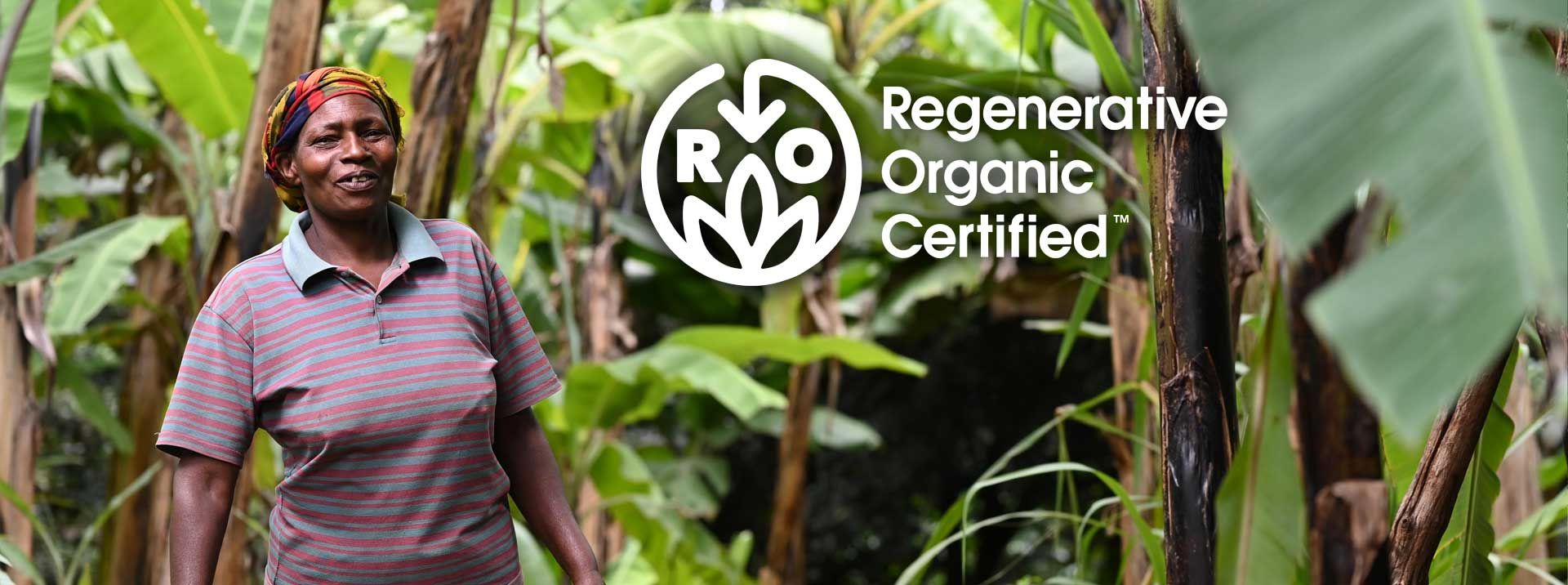
LIMBUA is the world's first macadamia producer with ROC™ certification
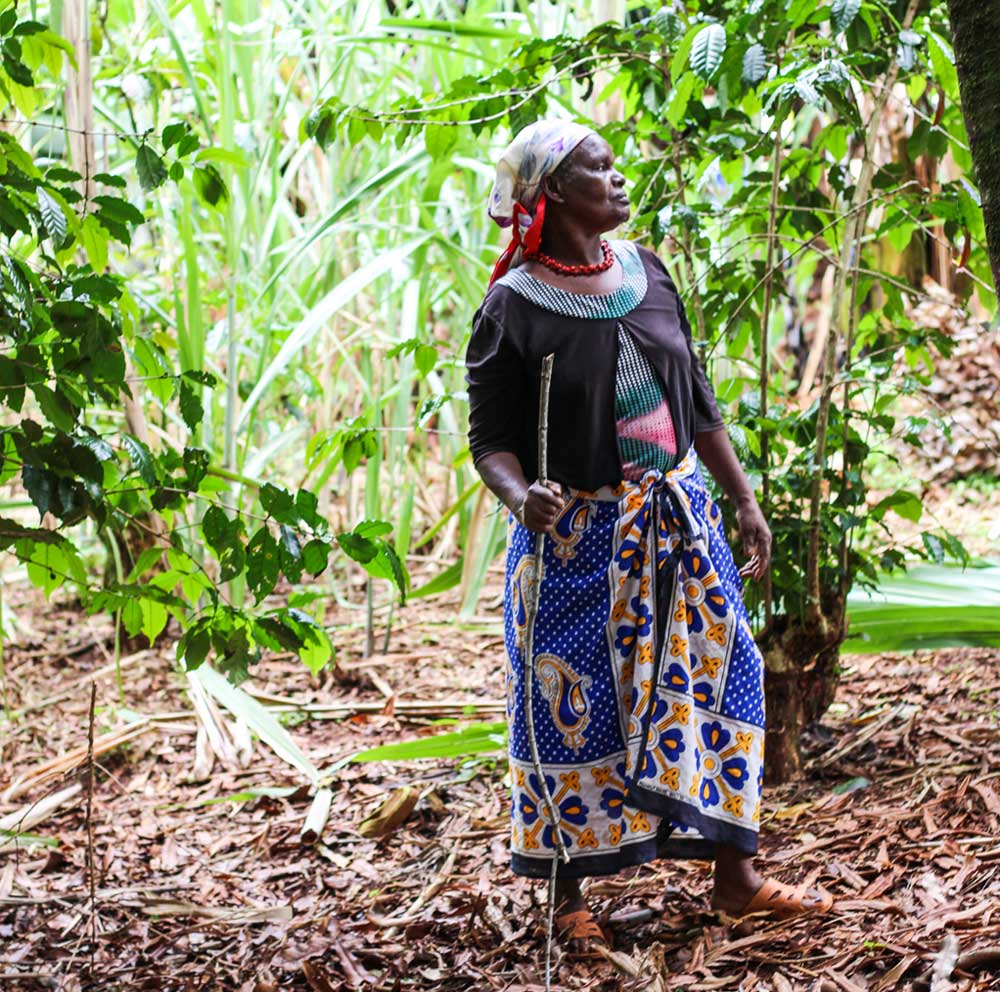
LIMBUA macadamia smallholder on her organic mixed farm
More than sustainable
Regenerative agriculture is an approach that aims to be not only sustainable, but regenerative, that is, to support soil health, increase biodiversity and promote positive impacts on the ecological balance. This holistic sustainable agriculture not only respects the environment but also assumes social responsibility.
The certification uses the USDA Certified Organic standard as a basis. Critical criteria are added that combine the three main pillars of regenerative organic agriculture into one certification:
- Soil health: promotes practices that improve soil fertility and increase carbon sequestration in the soil.
- Animal welfare: Sets standards for species-appropriate animal husbandry and care.
- Social fairness: Considers social aspects such as fair wages and safe working conditions for people working in agriculture.
Video: Macadamia smallholder on organic mixed farm with LIMBUA employee
Healthy soil = Healthy food = Healthy people
For the LIMBUA team, ROC™ certification means further progress in its sustainability ambitions. The certification not only highlights organic farming, but also sets new standards by emphasizing soil health as a key element for climate protection.
Depleted soils threaten our natural balance, from the productivity of our farmland to the availability of our food. While organic farming helps reduce carbon emissions by avoiding synthetic inputs, regenerative farms take a more proactive role in carbon sequestration by using techniques such as agroforestry, no-till and cover cropping that enhance the soil's ability to sequester and store carbon dioxide from the atmosphere, mitigating climate change.
Regenerative organic agriculture, as promoted by ROC™ certification, therefore includes practices such as:

- Soil management and vegetative cover:
protecting and maintaining soil structure by minimizing soil disturbance from tillage equipment. This prevents erosion and carbon loss.
Covering the area with living vegetation, crop residues or mulch: This returns nutrients to the soil, prevents erosion, controls pests and reduces weeds..

- Diversity and crop rotation:
Cultivating different plant species in rotation to promote biodiversity and control pests.

- Composting and soil analysis:
The use of nutrient-rich compost improves soil health and accelerates carbon sequestration. While organic farming encourages the use of compost, ROC goes further and requires regular analysis of the soil to determine nutrient levels and detect any deficiencies in the soil. This allows the LIMBUA team to ensure that the correct balance of ingredients is incorporated when composting to maintain an overall healthy soil.
The LIMBUA contract farmers receive free, high-quality organic compost made from organic waste from our production. Since 2022, over 200 tons of this valuable compost have already been distributed to LIMBUA contract farmers and schools for their organic school gardens. (Status: 01.2024)
Further information
LIMBUA composting

- Animal integration:
Incorporating animals into the farm to promote natural processes such as grazing and manure utilization.

- No synthetic chemicals:
Avoiding the use of chemical fertilizers, pesticides and herbicides. Pest control is achieved through composting and rotation of beneficial plants, animals and insects.
These measures protect and improve the soil, promote biodiversity and increase climate resilience. A holistic system that sees the well-being of the earth, people and animals as interconnected.
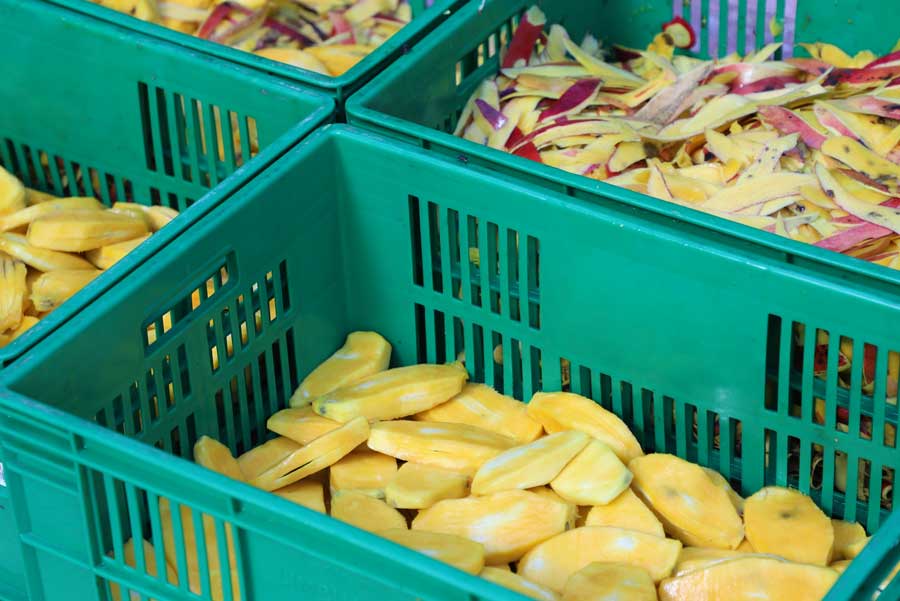
LIMBUA mango waste for compost production
Social Fairness
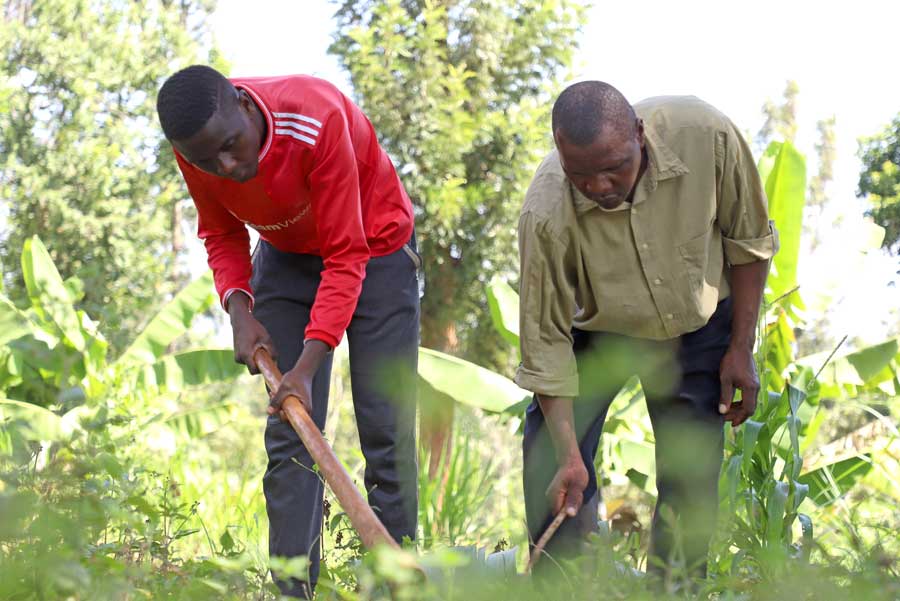
As LIMBUA has exclusively practiced organic farming in mixed crops from the beginning on, no fundamental changes had to be made for the ROC™ certificate, only adjustments to the existing cultivation systems. This is because ROC™ builds on the concepts of organic farming and, in addition to the already existing sustainable agriculture, leads to an optimal conservation of nature and a higher productivity.
We therefore go one step further to understand the cost of living and ensure that the employees are fully covered: every year, LIMBUA conducts a living wage study and ensures that staff are paid above this. This also applies to the workers who work on the farms of the contract farmers.
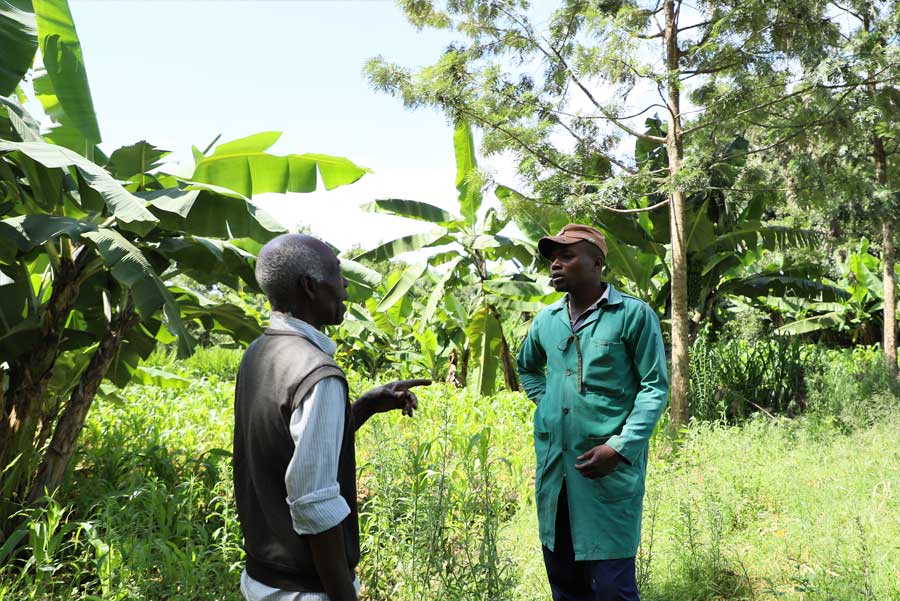
Smallholder in exchange with LIMBUA employee
Responsible consumption
Everyone, who chooses food with the Regenerative Organic Certified® label actively supports regenerative agriculture. This approach has a positive impact on ecological, ethical and social aspects. Choosing products with this certification helps to promote a sustainable future for our environment.

